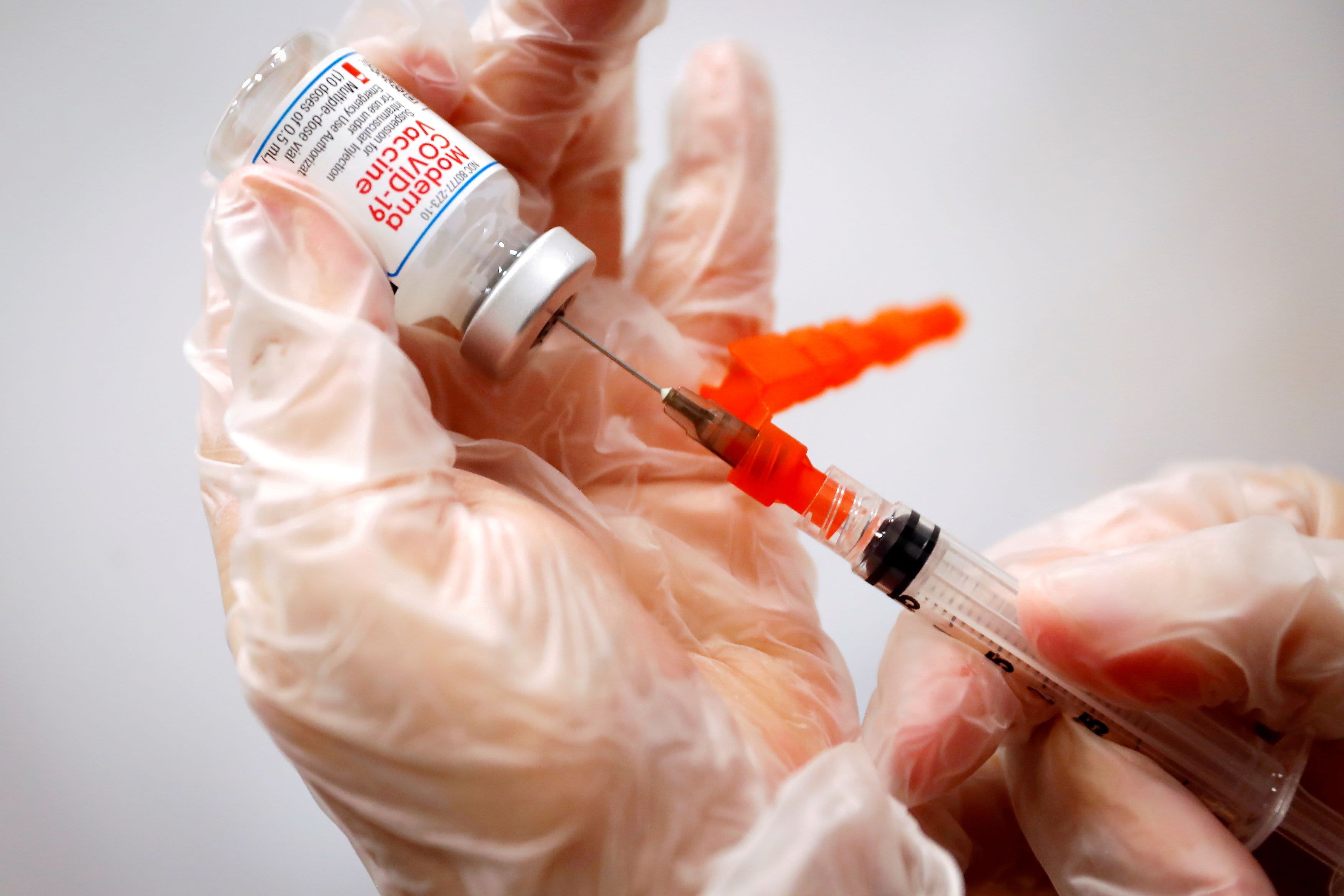The Food and Drug Administration on Friday authorized adults 18 and older who are vaccinated with Moderna to get a booster shot five months after their second dose, shortening the waiting period by a month.
Earlier this week, the FDA authorized everyone 12 and older who received the Pfizer and BioNTech vaccine to get a booster dose at least five months after their second dose, down from six.
The Centers for Disease Control and Prevention originally recommended Moderna boosters for adults in October. The CDC lowered eligibility for Pfizer boosters to people 12 and older on Wednesday.
Moderna and Pfizer are the most commonly administered vaccines in the U.S. The shortened waiting period for boosters comes as data shows that two doses do not provide strong protection against symptomatic infection from omicron, the dominant variant in the U.S., though they do still offer good protection against severe illness.
Real-world data from the United Kingdom shows that boosters are up to 75% effective at preventing symptomatic infection from omicron two weeks after receiving the shot, according to a report published last week from the U.K. Health Security Agency.
“Vaccination is our best defense against COVID-19, including the circulating variants, and shortening the length of time between completion of a primary series and a booster dose may help reduce waning immunity,” Dr. Peter Marks, head of the FDA group responsible for vaccine safety.
Moderna CEO Stephane Bancel, in an interview at a Goldman Sachs event yesterday, said fourth doses may be necessary at some point because the protection provided by boosters is also likely to decline over time.
“I will be surprised when we get that data in the coming weeks that it’s holding nicely over time — I would expect that it’s not going to hold great,” Bancel said, referring to the strength of the booster shots.
The U.K. Health Security agency found that booster protection starts to decline after about four weeks. Boosters were 55% to 70% effective at preventing infection at weeks five to nine, and 40% to 50% effective 10 weeks after receiving the shot.
Pfizer CEO Albert Bourla told CNBC last month that people will likely need a fourth dose, and the shot may be needed sooner than expected due to omicron’s virulence.
The U.S. is facing an unprecedented wave of Covid infections right now, with a seven-day average of more than 600,000 new cases daily, according to a CNBC analysis of data from Johns Hopkins University. That’s a 72% increase form the week prior and a pandemic record.

